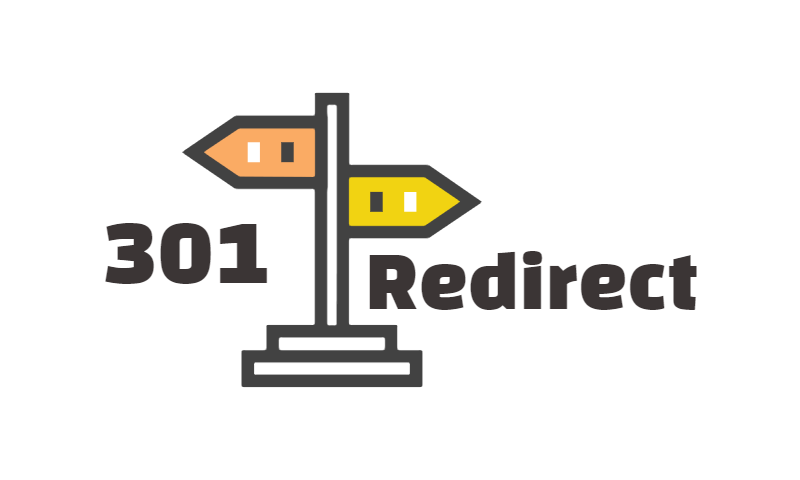One of the most common tools used by webmasters when revamping, restructuring or link optimizing their websites is the 301 Permanent RedirectIt passes on SEO power, avoids dead links, and maintains user experience. It passes SEO weight, avoids dead links, and maintains user experience. But some people are worried: 301 redirects will not slow down the loading speed of the site? This article provides you with a comprehensive answer to this question.
![Image[1]-Seemingly harmless 301 redirects, but it is the "invisible killer" that leads to slow loading?](http://gqxi.cn/wp-content/uploads/2025/08/20250801140411870-image.png)
I. Working mechanism of 301 redirection
When a user visits a link that has been set up with a 301 redirect, the browser and theserver (computer)The following process occurs between:
- The browser initiates a call to the old URL (e.g.
/old-page) request; - The server returns an HTTP 301 status codeand inform the new address
/new-page.; - The browser automatically redirects to the new address and re-initiates the request once more;
- The server returns the content of the new page and finishes loading.
This suggests that theEach 301 redirect generates an additional network request and response, a step slower than visiting the target page directly.
![Image[2]-Seemingly harmless 301 redirects, but it is the "invisible killer" that leads to slow loading?](http://gqxi.cn/wp-content/uploads/2025/08/20250801141048600-image.png)
Second, does redirection really affect loading speed?
The answer. "There will be an impact, but it's manageable.". We can look at this in several ways:
1. Increased delay in first visit
One more request means that the time to first byte (TTFB) will be longer. This is detrimental to user experience and search engine crawling.
2. The longer the redirection chain, the slower it loads
If there are multiple levels of redirection, for example:
A → B → C → DThe browser will go through 4 requests To get the final content, it loads significantly slower.
3. CDNs and browser caching can optimize the first hop
enough CDN(e.g. Cloudflare) caches 301 redirect responses, and modern browsers also cache redirect paths so that the next visit to the same address does not trigger the full redirect process.
4. Search engines recognize and follow 301 redirects
Search engines such as Google can handle 301 redirects very well, and weights can be transferred smoothly. However, loading is too slow, which may affect the crawling frequency and rating.
![Image [3]-Seemingly harmless 301 redirects, but is it a "hidden killer" that leads to slower loading?](http://gqxi.cn/wp-content/uploads/2025/08/20250801140559644-image.png)
Third, how to reduce the performance impact of 301 redirects?
1. Avoiding redirect chains
Redirect each URL at most once, chain redirection or dead loop is prohibited:
Example of an error:/a → /b → /c → /d
It is recommended to optimize for:/a → /d
2. Checking the website's URL set up
Go to WordPress backend → Settings → General and check both sections:
WordPress Address (URL) and Site Address (URL)
![Image [4]-Seemingly harmless 301 redirects, but is it a "hidden killer" that leads to slower loading?](http://gqxi.cn/wp-content/uploads/2025/08/20250801135919292-image.png)
3. Direct access to the target address
When updating the internal link of the website, avoid pointing to the old address, and change it to the new URL directly to reduce the redirection request from the user side.
4. Use of high-performance servers or CDNs
CDNs can cache redirected responses to dramatically reduce request latency, while high-performance hosts can respond quickly to status codes to avoid bottlenecks.
Fourth, the developer suggests: which cases must be set 301?
- Permanent page migration
- URL restructuring (e.g.
/blog/post-name→/articles/post-name) - Merge multiple page content into one page
- Standardize multiple entry links (e.g.
http://→https://(math.) genuswww.→ Nonwww.)
301 is the most secure SEO redirection, but should be set up carefully and used reasonably to prevent the negative impact of cumulative.
![Image [5]-Seemingly harmless 301 redirects, but it is the "invisible killer" that leads to slow loading?](http://gqxi.cn/wp-content/uploads/2025/08/20250801140450304-image.png)
V. Summary
301 redirects do not "seriously slow down" websites per se, but introduce additional requests and delays, which is more pronounced in cases of multiple redirects or slow server response. In order to balance the SEO with performance, it is recommended to plan redirection paths wisely to avoid redirection chains and unnecessary logic overlays.
Link to this article:http://gqxi.cn/en/72267The article is copyrighted and must be reproduced with attribution.


























![Emoji[jingya]-Photonflux.com | Professional WordPress repair service, worldwide, rapid response](http://gqxi.cn/wp-content/themes/zibll/img/smilies/jingya.gif)






No comments